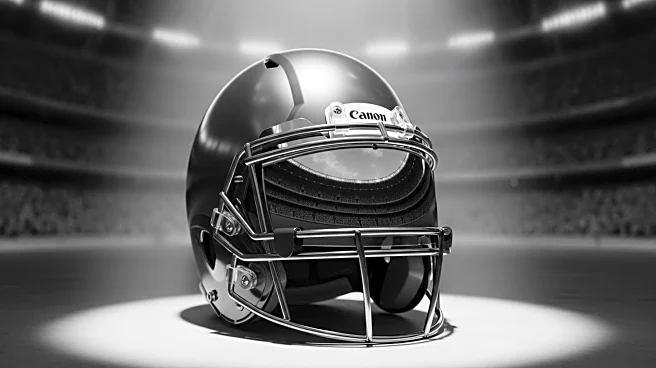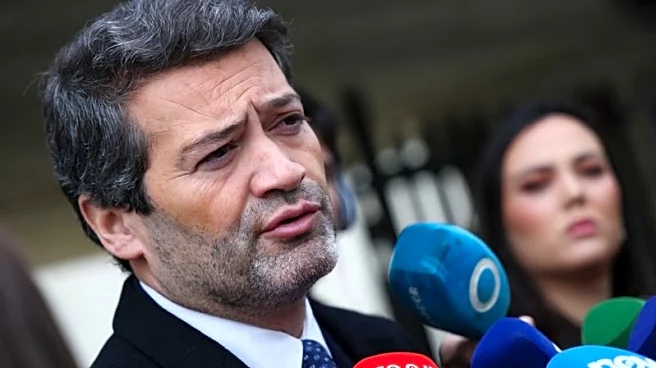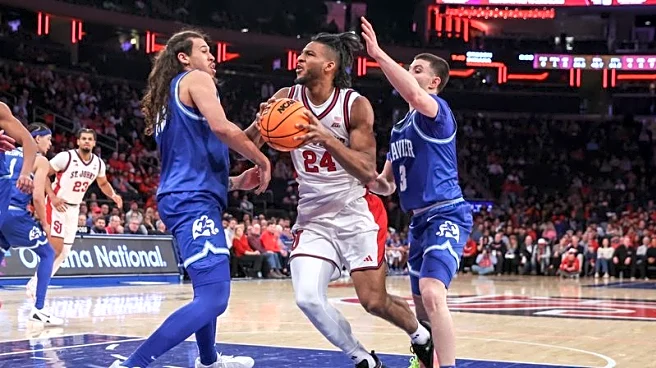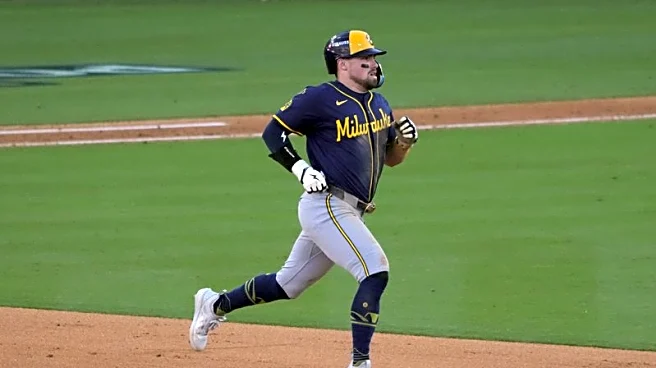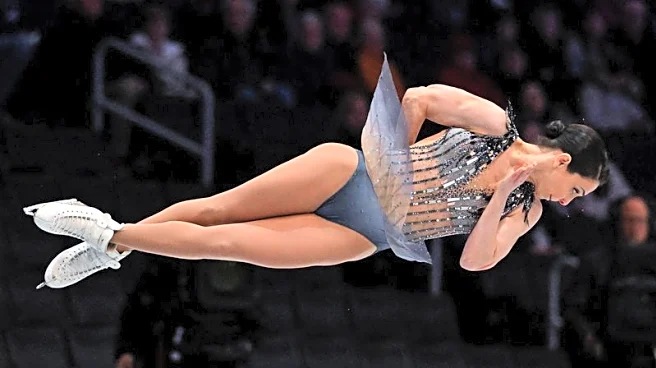What is the story about?
What's Happening?
The Southeastern Conference (SEC) has admitted that officials made an error during the Oklahoma vs. Auburn college football game, where Oklahoma's first touchdown should have been overturned. The play involved Oklahoma's wide receiver Isaiah Sategna III pretending to head to the sideline, only to remain on the field and catch a wide-open pass for a touchdown. This maneuver was deemed illegal by ESPN rules analyst Matt Austin, who stated that using the substitution process to deceive opponents constitutes unsportsmanlike conduct. Auburn's head coach Hugh Freeze expressed dissatisfaction with the call, noting that his staff was informed that such tactics were illegal. Despite Oklahoma's offensive coordinator Ben Arbuckle defending the play as a 'tempo play,' the SEC later issued a statement agreeing with Auburn's stance, indicating the play should have been penalized with a 15-yard unsportsmanlike conduct penalty.
Why It's Important?
The SEC's admission of officiating errors in the Oklahoma vs. Auburn game highlights the ongoing challenges in ensuring fair play and accurate officiating in college football. Such errors can significantly impact game outcomes, as seen in this closely contested match where Oklahoma won by a narrow margin. The acknowledgment by the SEC may lead to increased scrutiny and pressure on officials to adhere strictly to rules, potentially affecting future games and officiating standards. Auburn's loss, influenced by these controversial calls, could have implications for their season, especially with upcoming games against top-ranked teams. This incident underscores the importance of transparency and accountability in sports officiating, which can affect team standings and fan trust.
What's Next?
Following the SEC's statement, there may be repercussions for the officiating crew involved, as the conference has promised 'appropriate accountability.' This could include retraining or disciplinary actions to prevent similar errors in future games. Auburn, facing a challenging schedule ahead, will need to regroup and focus on their upcoming matches against No. 10 Texas A&M and No. 5 Georgia. The controversy may also prompt discussions within the NCAA about refining rules and improving officiating standards to minimize errors and ensure fair competition. Teams and coaches might become more vigilant in monitoring officiating decisions, potentially leading to more challenges and reviews during games.
